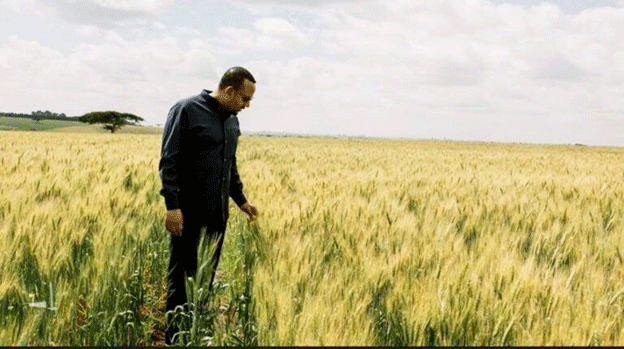The Ethiopian government has recently declared notable progress in achieving wheat self-sufficiency, citing a production of 230 million quintals (23 million metric tons) during the 2023/2024 harvesting season, up from 151 million quintals in 2022/2023.
This surge is attributed to expanded irrigated farming, improved seed varieties, and modern agricultural techniques.
Despite these reported gains, Ethiopia continues to grapple with significant food insecurity. In 2024, an estimated 15.8 million people required food assistance, including approximately 4 million internally displaced persons affected by conflict and drought.
The Famine Early Warning Systems Network (FEWS NET) projected that Crisis (IPC Phase 3) or Emergency (IPC Phase 4) food insecurity would persist into mid-2025, particularly in regions like Afar, Tigray, Amhara, Oromia, and Somali.
The government’s assertion of wheat self-sufficiency has faced skepticism, especially given the ongoing need for humanitarian wheat imports. Officials clarified that while domestic production has increased, humanitarian agencies may still opt to import wheat to meet specific operational needs. This distinction highlights that self-sufficiency claims may not fully account for localized shortages and the logistical challenges of distributing wheat to all affected areas.
Moreover, data discrepancies have emerged. The International Production Assessment Division (IPAD) of the USDA estimated Ethiopia’s wheat production for the 2024/2025 marketing year at 6 million metric tons, a figure significantly lower than the government’s reported 23 million metric tons.
This disparity raises questions about data collection methodologies and the reliability of official statistics.
In conclusion, while Ethiopia reports substantial progress toward wheat self-sufficiency, the coexistence of increased production with widespread food insecurity and reliance on humanitarian aid suggests a more complex reality. Accurate data and a nuanced understanding of regional disparities are essential for addressing the country’s food security challenges effectively.
Error




